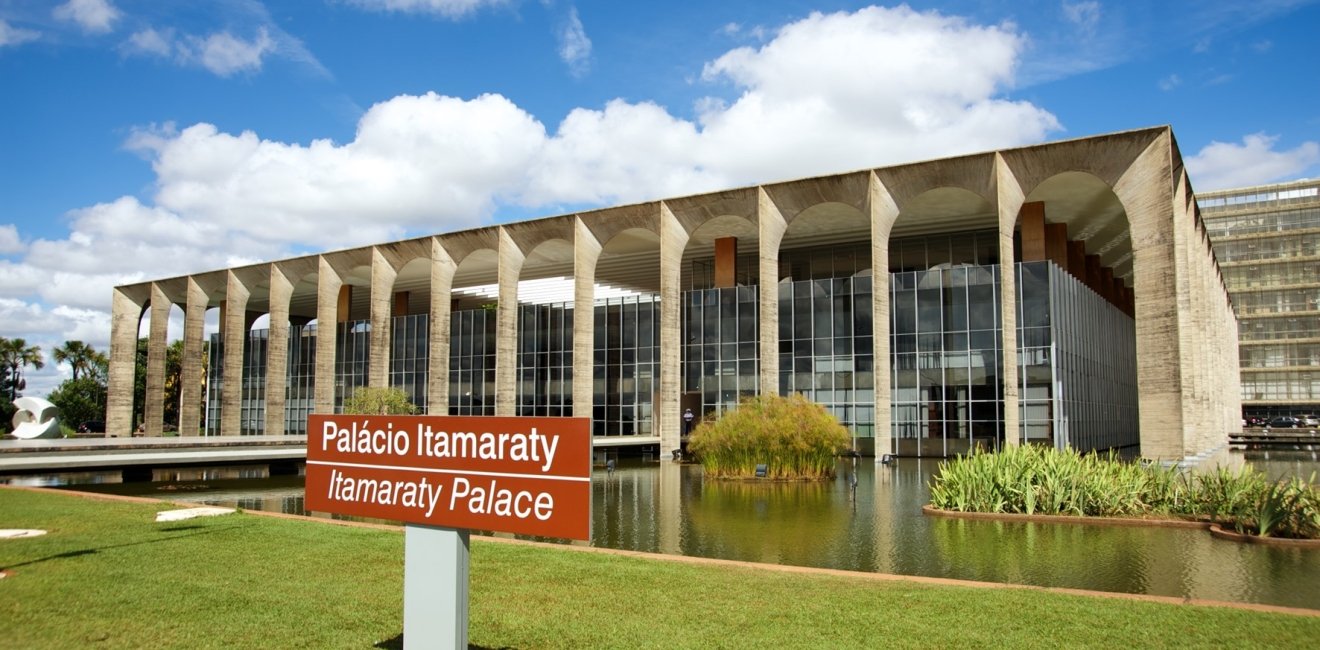Q&A with Maria Herminia Tavares de Almeida | Polarization in Brazilian Foreign Relations
Emerita Professor of Political Science, University of São Paulo, member of the Brazil Institute Advisory Council.
Emerita Professor of Political Science, University of São Paulo, member of the Brazil Institute Advisory Council.

In this Q&A, Brazil Institute's Giulia Spiess speaks with Maria Herminia to discuss the complexities and evolution of Brazil's foreign policy in recent years. They delve into the lasting influence of Itamaraty, the Ministry of Foreign Relations, in shaping Brazil's international strategy, the changes in foreign policy during Lula's three terms, and the impact of domestic polarization on bilateral relations with the United States. Maria Herminia provides a precise analysis of how Brazil manages its foreign policy in the midst of shifting global dynamics and internal political challenges, giving a comprehensive overview of the factors that influence its diplomatic landscape.
Giulia Spiess: One of the critical topics in contemporary international relations is understanding how domestic politics influences foreign policy. There is substantial evidence that domestic political contexts frequently shape foreign policy decisions, as decision-makers must consider the political environment’s requirements for effective action. In Brazil, the Ministry of Foreign Relations, commonly known as Itamaraty, has traditionally been the central body managing the country’s foreign policy. Do you believe this dynamic has changed in recent years? If so, what factors do you attribute to this change?
Maria Herminia: Itamaraty has been playing this role for a long time. Its prominence is due to three different factors. The first is the knowledge and expertise accumulated by a professional bureaucracy with high “esprit de corps” levels. The second is its bureaucratic insulation from domestic politics, which was possible in the past due to Itamaraty’s solid institutional culture and the Brazilian elite’s low interest in foreign issues. Since the demise of the authoritarian regime in the late 1980s, the bureaucratic insulation has been shrinking. Interest groups, politicians, and organized civil society have shown increasing interest in foreign policy and tried to influence governmental decisions. The Ministry of Foreign Relations was - and is, today – obliged to acknowledge them and consider their views.
The third factor is the importance attributed by presidents to foreign policy. When presidents were willing to have active presidential diplomacy, Itamaraty’s autonomy to define the country’s stand on international issues diminished. Fernando Henrique Cardoso and Lula have been deeply involved in foreign policy. Both enjoy international politics and have dedicated a lot of their time to presidential diplomacy. Therefore, there are structural and contingent conditions that influence Itamaraty’s stewardship of Brazil’s foreign policy. But undoubtedly, it continues to play a central role in defining our international strategy and in making things happen.
Giulia Spiess: How do the foreign policy strategies differ between Lula's first, second, and current administrations? In his current term, Lula has faced criticism for prioritizing foreign policy over domestic issues, particularly in his relationship with the National Congress. What's your perspective on these criticisms?
Maria Herminia: There has not been a radical change of strategy, which, on the other hand, was not so different from the previous government. Former Minister of Foreign Affairs Celso Lafer has said that, for a long time, Brazil’s foreign policy has been - and should be - a tool to benefit the country’s growth and socioeconomic development. Peaceful relations with neighbors, multilateralism, and active participation in multilateral international regimes are values embedded in the country’s diplomatic tradition. A positive relationship with the U.S., respectful but not unconditionally aligned to the American international goals, is also part of that strategy.
During Lula’s first and second terms, there were three international fronts based on the idea of coalition building to soften what was seen as US predominance. The first was creating a South American forum to negotiate regional problems and find solutions. The other was coalition building with emerging countries embodied in the BRICS initiative. The third has been coalition building inside UN-Bretton Woods institutions to enlarge the space for emerging countries.
The conditions under which that strategy seemed plausible have changed dramatically. Political instability and increased political polarization in South America undermined the possibility of institutionalizing regional tools for political coordination among neighboring countries. The rise of China has completely changed the nature of the BRICS coalition, which increasingly looks like a tool for that country's economic and political goals. Finally, the crises of the UN and Bretton Woods institutions have reduced the space for the coalition-building strategy to reform them.
Lula's third term began with the intent of reenacting his previous foreign policy strategies. However, he is gradually recognizing that these strategies are no longer feasible under current international circumstances. This shift explains much of President Lula’s inconsistent remarks on major international crises and the perception that the country lacks a coherent and practical strategy.
Lula's third term began with the intent of reenacting his previous foreign policy strategies. However, he is gradually recognizing that these strategies are no longer feasible under current international circumstances. This shift explains much of President Lula’s inconsistent remarks on major international crises and the perception that the country lacks a coherent and practical strategy.
It seems that Brazil is striving to gain space and legitimacy within the G20, a unique forum that facilitates dialogue between wealthy capitalist countries and emerging nations. Additionally, Brazil is leveraging its position on climate issues to redefine its international prominence. Criticism of an alleged excessive focus on foreign policy should not be taken too seriously; it is often part of the domestic political debate and idle talk. In fact, presidential diplomacy is generally well-regarded in Brazil.
Giulia Spiess: How does the polarized political landscape in both Brazil and the US affect their bilateral relations? Additionally, how is the Lula administration navigating these challenges in its foreign policy approach?
I believe the Lula administration is working to depolarize Brazil's domestic political landscape. Fortunately, bilateral relations are not solely dependent on government interactions. There are strong and enduring connections between Brazil and the US across various sectors, including trade, investment, scientific and cultural cooperation, and tourism. Additionally, experienced and sensible officials on both sides are committed to maintaining these ties, regardless of electoral outcomes.
Giulia Spiess: Has the polarization of our societies extended to our foreign policies?
In Brazil, there is no evidence of political calcification. Polarization appears to involve a minority of radicalized activists from the extreme right and a small group on the left, both of which are overrepresented on social media. The federal government does not encourage polarization. Polls indicate that public opinion is not polarized, and there are points of convergence among those who voted for Bolsonaro and Lula in 2022. While there is a conservative majority, the public is not polarized.
Under former President Jair Bolsonaro, there was an attempt at radical change in foreign policy led by then-Foreign Minister Ernesto Araujo. This shift lasted around two years before being countered by Itamaraty’s deep state and the actual interests of significant economic groups. Subsequently, Brazil returned to its traditional foreign policy approach, albeit at a lower-key level, lacking a grand strategy or active presidential diplomacy, primarily because Bolsonaro did not have the interest or the skills for such diplomacy.



The Brazil Institute—the only country-specific policy institution focused on Brazil in Washington—aims to deepen understanding of Brazil’s complex landscape and strengthen relations between Brazilian and US institutions across all sectors. Read more



